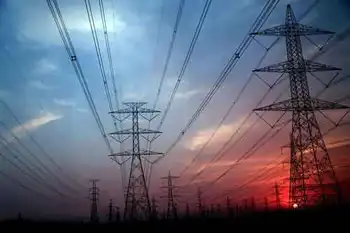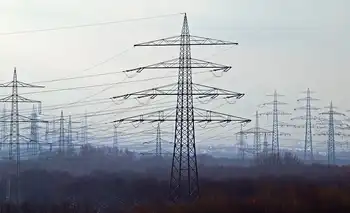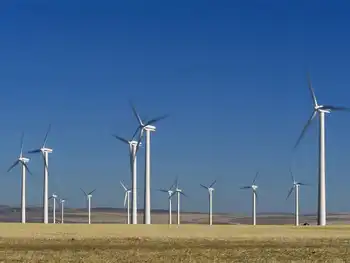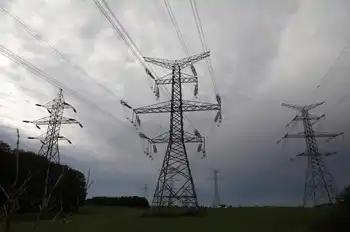AEP CEO sees crisis without more coal plants
By Reuters
Arc Flash Training CSA Z462 - Electrical Safety Essentials
Our customized live online or in‑person group training can be delivered to your staff at your location.

- Live Online
- 6 hours Instructor-led
- Group Training Available
Michael Morris of AEP said that he fears the United States will rely on natural gas plants too heavily if it drastically cuts burning coal to make electricity.
"We will find ourselves in a classic electric shortage and we will probably pursue the line that this country usually follows when it faces a shortage and come up with some terribly ill-conceived answers," if construction of coal-fired power plants continues to be curtailed, Morris said.
Within five years to a decade, heavy industrial users will face involuntary power cuts unless more coal plants that emit less carbon dioxide (CO2) come on line, said Morris, speaking to energy executives at the week-long CERA conference in Houston.
U.S. Federal Energy Regulatory Commission Chairman Joseph Kelliher, also speaking at the CERA conference on Friday, said that 54 percent of coal-fired power plants ordered since 2000 have been canceled in the past two years.
Coal-fired power plants produce about 40 percent of U.S. greenhouse gas emissions. A so-called "dash to gas" in building power plants that burn natural gas "will lead us to a very, very reckless conclusion on the cost of energy as we go forward," said Morris.
"If we don't find a way inside of the carbon challenge to retrofit the existing coal fleet, we will find ourselves in a huge dilemma," Morris said. "You simply can't pare off plant after plant after plant and have the U.S. economy leap forward in any way, shape or form."
Morris said that "clean coal" plants are the future of peaking power plants because the U.S. has abundant supply.
AEP is working to build a large, integrated gasification combined cycle (IGCC) plant in Ohio - which is a new technology that seeks to capture CO2 emissions - and is involved in a carbon sequestration project in West Virginia.
AEP says 73 percent of its power plants burn coal, while 16 percent burn natural gas and nuclear plants make up 8 percent of its generation capacity. About 3 percent are renewable power plants like wind and hydro.
AEP, based in Columbus, Ohio, delivers electricity to 5 million customers in 11 states and has power plants that can generate 38,000 megawatts. A megawatt in its service area can serve about 750 homes.
Morris said the U.S. generation supply should be increased primarily by coal-fired and nuclear power plants because they are around-the-clock "baseload" generating units. He said it will take until 2020 or so to have a significant amount of nuclear plants.
No new licenses to build a nuclear power plant have been granted in three decades, and four applications have been filed with the U.S. Nuclear Regulatory Commission since last fall.
Morris said the likelihood of legal challenges will keep AEP from being in the "first wave" of what some see as a coming nuclear renaissance. The NRC says it takes about four years for it to review a license before one can be granted.
Coal power plants make half of the electricity used in the United States, and nuclear plants make about 20 percent.











